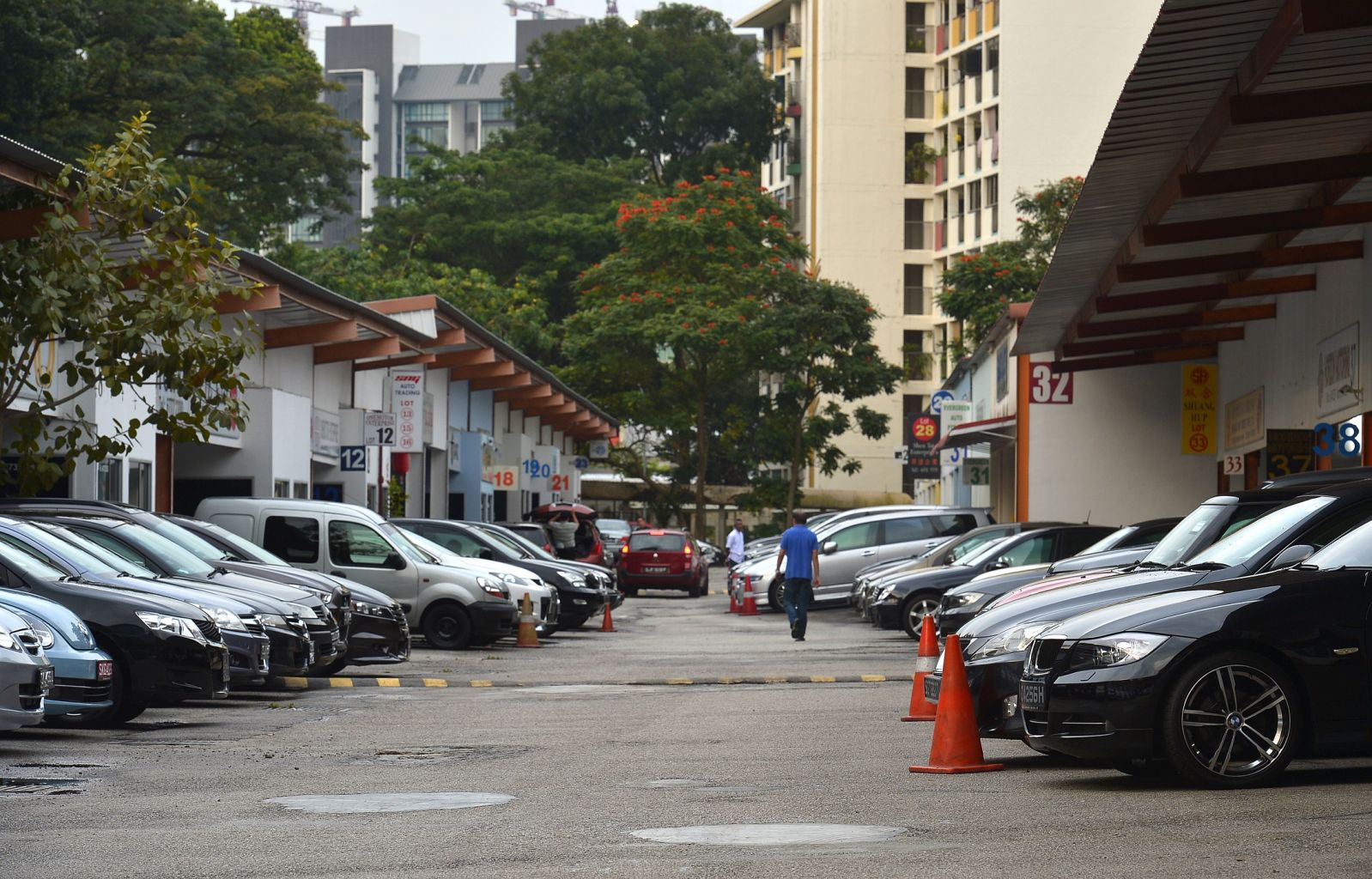Majority of lemon-law car disputes 'resolved'
But only four owners managed to get cars replaced, says watchdog
Sign up now: Get ST's newsletters delivered to your inbox

Rows of used cars at the Commonwealth Car Mall.
PHOTO: ST FILE
The Consumers Association of Singapore (Case) has handled more than 1,100 "lemon law" cases regarding defective cars since the law came into effect in September 2012.
While more than two-thirds were resolved satisfactorily, only four consumers managed to get replacements for their "lemons".
The lemon law is an amendment to the Consumer Protection (Fair Trading) Act and the Hire Purchase Act, which gives consumers more protection against inherently defective products, colloquially known as lemons. The law requires sellers to make good defects found within six months of the sale of a product. If the fault is deemed irreparable, the seller has to replace it or provide a total refund.
According to Case, the number of lemon-law cases it handled up to 2017 averaged 200 a year, with the number hitting a high of 256 in 2015.
While only four owners have managed to get their defective cars - two new and two used - replaced, Case said about two-thirds of cases were settled amicably, often with monetary compensation.
Mr Mohamad Quthubdean, who bought a seven-year-old Volkswagen Tiguan in December 2016, said he managed to get the seller to foot part of the repair bills he incurred.
The engine failed two months after he took ownership, and had to be overhauled. The total cost came to $8,000, but through Case, he got the seller to pay $3,000.
-
1,100
Number of lemon-law cases regarding defective cars since the law came into effect in September 2012.
"The car actually came with a one-year warranty, but when I took it back, the dealer denied responsibility and blamed me for the fault," said the managing director of a healthcare products supplier.
After three days of haggling, he decided to take the car to another workshop. He also approached Volkswagen Centre Singapore, the authorised VW agent here, and found that the car's mileage was much higher than what was on its odometer.
With Case, he confronted the seller, who eventually agreed to compensate him $3,000.
"It was quite awful," Mr Mohamad, 34, said of the experience.
About a quarter of lemon-law cases could not be resolved by the consumer watchdog, and had to be filed with the Small Claims Tribunals. But even that is no guarantee.
Project manager Samuel Tan, 38, bought an eight-year-old Ford Focus last June, which stalled on the road during the first week.
The dealer denied responsibility and Mr Tan approached Case, which recommended that he take the case to the tribunals. The judge, however, ruled against him, saying whatever warranty had to be written down in the sales agreement.
After Mr Tan wrote about his experience in a Forum letter to The Straits Times, Case responded, saying the lemon law is binding even if there is no written warranty. "Retailers cannot contract out of their obligations under the law," it said.
Mr Tan said he had no choice but to pay for repairs, amounting to around $3,000, himself.
Lawyer Vijai Parwani said consumers like Mr Tan can still lodge an appeal with the High Court. But first, he must get permission to do so from the tribunals.
The managing director of Parwani Law LLC said: "Recently, we acted for a buyer of a vehicle who took the dealer to the Small Claims Tribunals. He lost and we came in to file the appeal. We managed to get leave to appeal to High Court."
The case was settled before the appeal was heard.


